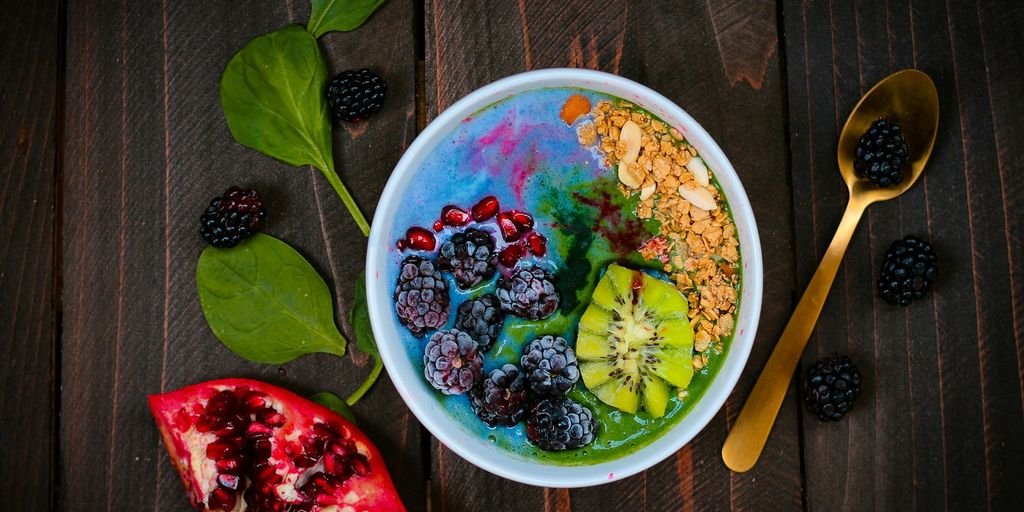
In today’s fast-paced world, many people struggle with weight loss and maintaining good health. This guide aims to simplify the complex world of nutrition and weight loss by focusing on nutrient-dense foods. By understanding the importance of what we eat, we can make better choices that lead to sustainable weight loss and improved overall health. This comprehensive guide will help you unlock the secrets to a healthier lifestyle through practical tips and easy-to-follow advice.
Key Takeaways
- Nutrient-dense foods are essential for a balanced diet and can help with weight loss.
- Including a variety of fruits, vegetables, whole grains, and lean proteins is important for overall health.
- Healthy fats are vital for satiety and can aid in weight management.
- Mindful eating can improve your relationship with food and help prevent overeating.
- Regular physical activity and proper hydration are crucial for maintaining a healthy weight.
The Importance of Nutrient-Dense Foods
Understanding Nutrient Density
When I first heard about nutrient density, I thought it was just another health buzzword. But it turns out, it’s super important! Nutrient-dense foods are those that pack a lot of vitamins and minerals without a ton of calories. This means you can eat more and feel full without overdoing it on calories. Eating nutrient-dense foods can really help with weight loss!
Examples of Nutrient-Dense Foods
So, what are some of these magical foods? Here are a few that I love:
- Leafy greens like spinach and kale
- Fruits such as berries and apples
- Whole grains like quinoa and brown rice
- Lean proteins such as chicken and beans
- Healthy fats from avocados and nuts
Benefits of Nutrient-Dense Eating
Eating nutrient-dense foods has tons of benefits. Here’s why I think it’s a game-changer:
- Weight management: You can eat satisfying portions without piling on calories.
- Better energy: These foods fuel your body, keeping you energized throughout the day.
- Improved health: They help reduce the risk of chronic diseases.
Focusing on nutrient-dense foods isn’t just about losing weight; it’s about feeling good and living well!
How to Create a Balanced Diet
Creating a balanced diet is super important for feeling good and staying healthy. It’s all about mixing different food groups to get the nutrients your body needs. Here’s how I do it:
Incorporating Fruits and Vegetables
- Fill half your plate with fruits and veggies at every meal. They’re low in calories but high in nutrients.
- Try to eat a rainbow of colors. Different colors mean different nutrients!
- Snack on raw veggies or fruit instead of chips or candy.
Choosing Whole Grains
- Swap out white bread and pasta for whole grain options. Whole grains have more fiber and nutrients.
- Look for labels that say “100% whole grain” to make sure you’re getting the good stuff.
- Oats, brown rice, and quinoa are great choices!
Including Lean Proteins
- Choose lean meats like chicken or turkey, and don’t forget about fish! They’re great for building muscles.
- Beans, lentils, and tofu are awesome plant-based protein options.
- Mix it up! Try different sources of protein to keep things interesting.
A balanced diet isn’t about strict rules; it’s about making choices that help you feel your best. By focusing on variety, you can enjoy your meals while still getting the nutrients you need.
Remember, it’s all about finding what works for you. Balanced eating is key to feeling good and achieving your weight loss goals!
The Role of Healthy Fats in Weight Loss
Types of Healthy Fats
When it comes to fats, not all are created equal. Here’s a quick rundown of the types of fats you should be aware of:
- Monounsaturated Fats: Found in olive oil, avocados, and nuts. These are great for heart health.
- Polyunsaturated Fats: These include omega-3 and omega-6 fatty acids, found in fish and flaxseeds. They’re essential for your body.
- Saturated Fats: While you should limit these, some sources like coconut oil can be beneficial in moderation.
How Fats Affect Satiety
Healthy fats can help you feel full longer. This means you’re less likely to snack on unhealthy foods later. Here’s how they work:
- They slow down digestion, keeping you satisfied.
- They help absorb vitamins A, D, E, and K, which are crucial for your health.
- They can balance your blood sugar levels, reducing cravings.
Incorporating Healthy Fats into Your Diet
Adding healthy fats to your meals is easier than you think! Here are some simple tips:
- Drizzle olive oil on your salads or veggies.
- Snack on nuts instead of chips.
- Add avocado to your sandwiches or smoothies.
Remember, healthy fats are not the enemy! They play a vital role in your overall health and can actually support your weight loss journey. Embrace them, and you’ll feel the difference!
Understanding Intermittent Fasting
What is Intermittent Fasting?
Intermittent fasting is basically an eating pattern that switches between eating and fasting. It’s not about what you eat, but when you eat. This can really help improve health and manage weight!
Benefits of Intermittent Fasting
Here are some cool benefits I’ve noticed:
- Weight loss: It helps me shed those extra pounds.
- Improved focus: I feel sharper and more alert on fasting days.
- Better digestion: My stomach feels lighter and less bloated.
How to Start Intermittent Fasting
If you’re thinking about trying it out, here’s how I got started:
- Choose a method: There are different ways to do it, like the 16/8 method where you fast for 16 hours and eat during an 8-hour window.
- Stay hydrated: Drink plenty of water! It helps keep headaches away and makes fasting easier.
- Listen to your body: If you feel hungry, it’s okay to adjust your plan. Everyone’s different!
Intermittent fasting isn’t just a diet; it’s a lifestyle change that can lead to better health and energy levels. Just remember to be patient with yourself as you adjust!
Managing Stress for Better Health
Chronic stress can really mess with our health and weight. It often leads to emotional eating and cravings for junk food. Finding ways to manage stress is super important! Here are some tips that have worked for me:
Impact of Stress on Weight
- Stress can lead to overeating, especially high-calorie foods.
- It can mess with your hormones, making you feel hungrier.
- Stress often leads to a cycle of unhealthy eating and weight gain.
Stress-Reduction Techniques
- Exercise Regularly: Getting active helps release endorphins, the feel-good hormones. It’s a great way to clear your mind and boost your mood.
- Practice Mindfulness: Techniques like meditation or deep breathing can help calm your mind and reduce stress levels.
- Engage in Hobbies: Doing things you love can be a great escape from daily stressors.
Creating a Stress-Management Plan
- Identify your stress triggers and find ways to avoid them.
- Set aside time each day for relaxation or activities you enjoy.
- Don’t hesitate to reach out for support from friends or professionals.
Remember, managing stress is a journey, not a destination. It’s all about finding what works for you and making it a part of your daily routine.
By tackling stress head-on, we can not only improve our health but also make better choices when it comes to food. Let’s embrace a healthier lifestyle together!
The Science Behind Insulin and Weight Gain

What is Insulin?
Insulin is a hormone that plays a huge role in how our bodies use sugar. When we eat, our blood sugar levels rise, and insulin helps move that sugar into our cells for energy. But here’s the kicker: if we keep eating too many sugary or processed foods, our bodies can start to resist insulin. This means we need more and more insulin to get the same effect, which can lead to weight gain.
Insulin Resistance Explained
So, what’s insulin resistance? It’s when our cells stop responding to insulin properly. This can happen for a few reasons:
- Overeating: Too much sugar and refined carbs can overwhelm our system.
- Lack of exercise: Physical activity helps our cells respond better to insulin.
- Stress: High stress can lead to hormonal changes that affect insulin.
When we become insulin resistant, our bodies can’t use sugar effectively, leading to higher blood sugar levels and, ultimately, weight gain. This is especially important for those of us who are losing weight with diabetes, as there’s a link between body weight and type 2 diabetes.
How to Improve Insulin Sensitivity
Improving insulin sensitivity is key to managing weight. Here are some simple steps:
- Eat whole foods: Focus on fruits, veggies, and whole grains.
- Stay active: Aim for at least 30 minutes of exercise most days.
- Manage stress: Try techniques like meditation or yoga.
Remember, making small changes can lead to big results. It’s all about finding what works for you and sticking with it!
Practical Tips for Sustainable Weight Loss

Setting Realistic Goals
When it comes to weight loss, setting achievable goals is key. I like to break my goals down into smaller, manageable steps. Here’s how I do it:
- Start with a specific target, like losing 1-2 pounds a week.
- Write down your goals in a journal or an app. This helps me stay accountable and track my progress.
- Celebrate small victories along the way!
Tracking Your Progress
Keeping a daily record can really help. I find that using a journal or an app helps me see what’s working and what’s not. It’s amazing how much you can learn about your habits. Here are some things I track:
- What I eat each day
- My exercise routines
- How I feel emotionally and physically
Staying Motivated
Staying motivated can be tough, but I’ve found a few tricks that work:
- Surround yourself with supportive friends or family.
- Join a group or community with similar goals.
- Remind yourself why you started this journey in the first place.
Remember, the journey to sustainable weight loss is a marathon, not a sprint. It’s all about making small, consistent changes that lead to big results over time.
By focusing on these practical tips, I’ve been able to create a lifestyle that supports my weight loss goals without feeling deprived. It’s all about finding what works for you and sticking with it!
The Benefits of Regular Physical Activity

Types of Physical Activities
When it comes to staying active, there are so many fun options! Here are a few I love:
- Walking or jogging: Simple and can be done anywhere.
- Cycling: Great for your legs and can be a fun way to explore.
- Dancing: Who doesn’t love a good dance party?
- Team sports: Playing with friends makes it even better!
How Exercise Aids Weight Loss
Regular physical activity is key to losing weight and keeping it off. Here’s how:
- It burns calories, which helps create a calorie deficit.
- It builds muscle, and more muscle means a faster metabolism.
- It boosts your mood, making you less likely to snack out of boredom.
Creating a Workout Routine
Starting a workout routine doesn’t have to be hard! Here’s a simple way to get going:
- Set a schedule: Pick days and times that work for you.
- Mix it up: Try different activities to keep it interesting.
- Start small: Even 10-15 minutes a day can make a difference!
Staying active is not just about losing weight; it’s about feeling good and enjoying life. Research shows that regular physical activity will increase your chances of maintaining weight loss. So, let’s get moving!
Embracing Mindful Eating

What is Mindful Eating?
Mindful eating is all about being present when you eat. It’s like taking a moment to really experience your food. Instead of rushing through meals, I try to slow down and notice the flavors and textures. This helps me enjoy my food more and makes me less likely to overeat.
Benefits of Mindful Eating
Mindful eating can change your relationship with food. Here are some benefits I’ve noticed:
- Reduces overeating
- Enhances enjoyment of meals
- Helps me listen to my body’s hunger cues
How to Practice Mindful Eating
Here are some simple steps I follow to practice mindful eating:
- Eliminate distractions: I put away my phone and turn off the TV.
- Savor each bite: I take my time to chew and enjoy the flavors.
- Listen to my body: I pay attention to when I feel full.
Mindful eating isn’t just about what you eat; it’s about how you eat. By focusing on the experience, I find that I appreciate my meals more and make healthier choices.
Incorporating mindful eating into my routine has been a game changer. It’s not just about losing weight; it’s about feeling good and enjoying my food. Plus, it makes those healthy, home-cooked meals even more satisfying!
The Role of Hydration in Weight Loss
Staying hydrated is super important for our health, especially when it comes to losing weight. Water is essential for so many body functions, and it can really help with weight loss. Here’s why hydration matters:
Importance of Staying Hydrated
- Controls Hunger: Sometimes, our bodies confuse thirst with hunger. By drinking enough water, we can avoid unnecessary snacking.
- Boosts Metabolism: Proper hydration can help speed up our metabolism, making it easier to burn calories.
- Improves Energy Levels: When we’re well-hydrated, we feel more energetic and ready to tackle our day.
How Water Affects Metabolism
Drinking water can actually increase the number of calories we burn. Studies show that drinking about 500 ml of water can boost metabolism by around 30% for about 30-40 minutes. So, if you want to give your metabolism a little kick, grab a glass of water!
Tips for Drinking More Water
- Carry a Water Bottle: Having a water bottle with you makes it easier to sip throughout the day.
- Set Reminders: Use your phone to remind you to drink water regularly.
- Flavor It Up: If plain water is boring, try adding slices of lemon, cucumber, or berries for a refreshing twist.
Staying hydrated is not just about drinking water; it’s about making it a part of your daily routine.
So, let’s make sure we’re drinking enough water every day. It’s a simple step that can lead to big changes in our health and weight loss journey!
Beyond Weight Loss: Achieving Overall Vitality
Improving Mental Clarity
When I think about vitality, it’s not just about losing weight; it’s about feeling good in my mind and body. Eating nutrient-dense foods can really boost your brainpower! Here’s how:
- Focus on whole foods: They’re packed with nutrients that help your brain function better.
- Stay hydrated: Water is essential for keeping your mind sharp.
- Get enough sleep: A good night’s rest is crucial for mental clarity.
Boosting Energy Levels
We all want to feel energized throughout the day. Here are some tips that work for me:
- Eat balanced meals: Include proteins, healthy fats, and carbs to keep your energy steady.
- Stay active: Regular exercise can actually increase your energy levels.
- Limit sugar: Too much sugar can lead to energy crashes.
Enhancing Mood and Well-Being
Feeling good is just as important as looking good. Here’s what I do to keep my mood up:
- Practice gratitude: Taking a moment to appreciate what I have can really lift my spirits.
- Connect with others: Spending time with friends and family makes a huge difference.
- Engage in hobbies: Doing things I love keeps me happy and fulfilled.
Remember, achieving overall vitality is a journey, not a race. It’s about making small, consistent changes that lead to a healthier, happier you.
By focusing on these aspects, I’ve found that I not only feel better but also enjoy life more. So, let’s embrace this journey together!
When it comes to feeling your best, weight loss is just the beginning. True vitality means taking care of your heart, liver, and overall health. Discover how you can boost your energy and improve your well-being with our natural supplement, Lipid Control Plus. Don’t wait—visit our website today to learn more and take the first step towards a healthier you!
Wrapping It Up: Your Journey to Health
So, there you have it! Unlocking the secrets of nutrition and weight loss isn’t just about counting calories or following the latest fad diet. It’s really about making smart choices that help you feel good and stay healthy. By focusing on nutrient-rich foods, staying active, and managing stress, you can create a lifestyle that supports your goals. Remember, this is a journey, not a race. Take it one step at a time, enjoy the process, and celebrate your wins along the way. You’ve got this!
Frequently Asked Questions
What are nutrient-dense foods?
Nutrient-dense foods are those that provide a lot of vitamins, minerals, and other nutrients without having too many calories. Examples include fruits, vegetables, whole grains, and lean proteins.
How can I create a balanced diet?
To create a balanced diet, include a variety of foods from all food groups. Make sure to add fruits, vegetables, whole grains, and lean proteins to your meals.
What are healthy fats and why are they important?
Healthy fats, like those found in avocados, nuts, and olive oil, help keep you full and are good for your heart. They are important for overall health.
What is intermittent fasting?
Intermittent fasting is a way of eating that alternates between periods of eating and not eating. It can help with weight loss and improve health.
How does stress affect weight?
Stress can lead to emotional eating and cravings for unhealthy foods. Managing stress is important for maintaining a healthy weight.
What role does insulin play in weight gain?
Insulin is a hormone that helps control blood sugar levels. When the body doesn’t use insulin properly, it can lead to weight gain.
What are some practical tips for losing weight?
Set realistic goals, track your progress, and find ways to stay motivated. It’s important to make small, sustainable changes.
Why is regular physical activity important?
Regular exercise helps burn calories, boosts mood, and improves overall health. It’s a key part of any weight loss plan.
About the Author






0 Comments